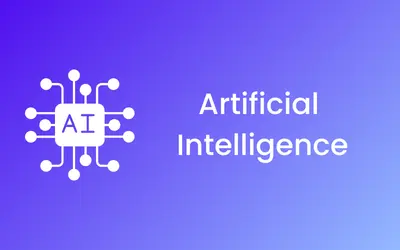Austin, Texas is a hub of technological innovation in the United States, with a thriving tech scene and a diverse range of industries fueling the demand for skilled and knowledgeable professionals. As the field of artificial intelligence (AI) continues to gain traction in various industries, including healthcare, finance, and transportation, the demand for AI specialists has skyrocketed. In response to this demand, many educational institutions in Austin now offer AI courses to prepare students for exciting and lucrative careers in this ever-evolving field. An AI course typically covers a wide range of topics, including machine learning, deep learning, natural language processing, and computer vision. Students learn how to train AI models, analyze data, and solve real-world problems using AI techniques. They also gain hands-on experience with popular AI frameworks like TensorFlow, PyTorch, and Scikit-Learn. These skills are highly desirable for many industries, including finance, healthcare, and transportation, which rely on AI to streamline operations, improve decision-making, and enhance customer experiences. The University of Texas at Austin offers a rigorous AI course as part of its computer science curriculum. The course, titled "Introduction to Artificial Intelligence," covers the fundamentals of AI, including search algorithms, probabilistic reasoning, and machine learning. Students use Python to implement AI algorithms and solve challenging problems. The course also includes a final project that allows students to apply their knowledge to a real-world problem, such as predicting stock prices or diagnosing medical conditions. The Austin Community College District (ACC) also offers an AI course as part of its computer science program. The course, titled "Machine Learning and Data Science," covers the basics of data analysis and machine learning. Students learn how to preprocess data, train models, and evaluate model performance. They also gain experience with common data science tools like Jupyter Notebooks, Pandas, and NumPy. In addition to these academic offerings, several organizations in Austin offer AI courses for professionals looking to upskill or switch to a career in AI. For example, the Austin Coding Academy offers a part-time course titled "Intro to Machine Learning" that covers the basics of machine learning and data analysis. The course includes hands-on coding exercises and culminates in a final project that showcases students' newfound skills. Similarly, the Data Science Dojo, a data science training provider, offers an intensive five-day course titled "Data Science and Applied Machine Learning Bootcamp." The course covers the entire data science pipeline, from data cleaning and preprocessing to model training and deployment. The bootcamp also includes a focus on real-world applications of data science, such as fraud detection and customer segmentation. In conclusion, Austin is a great place to study artificial intelligence, with many reputable academic institutions and organizations offering top-tier AI courses. Whether you're a student looking to advance your career or a professional seeking to upskill, there's an AI course in Austin that can help you achieve your goals. With the right AI skills under your belt, you'll be well-equipped to tackle the complex problems of the future and make a real impact in your chosen field.

₹60,000


Watch how students, freshers, and professionals transformed their careers with Skillfloor's Artificial Intelligence Courses Reviews
Hurry Up!
Limited seats call us now for amazing discounts on Artificial Intelligence Courses course



Skillfloor is a Government-Recognized Skill Development Institute under Startup India (DPIIT), offering career-focused certification programs in Analytics, Artificial Intelligence (AI), Data Science, Digital Marketing, SEO, and related domains. As one of India's largest training institutes, our courses emphasize hands-on projects, expert mentorship, and skills aligned with real hiring needs. With flexible learning options - online, offline, and hybrid, plus 100% scholarships for selective students, we make quality, job-ready education accessible.
Explore the program that aligns with your goals and take the next step with Skillfloor.



- Overview of AI and ML
- Types of Machine Learning
- Data Collection and Preprocessing
- Basic Statistics for AI
- Python Essentials for AI
- Regression Analysis
- Classification Algorithms
- Ensemble Methods
- Model Evaluation Techniques
- Feature Engineering and Selection
- Introduction to Clustering
- Dimensionality Reduction Techniques
- Association Rule Learning
- Anomaly Detection
- Self-Organizing Maps (SOM)
- Introduction to Neural Networks
- Deep Neural Networks (DNNs)
- Convolutional Neural Networks (CNNs)
- Recurrent Neural Networks (RNNs)
- Autoencoders and Generative Models
- Introduction to NLP and Text Processing
- Text Classification and Sentiment Analysis
- Advanced NLP Techniques
- Deep Learning in NLP
- Speech Recognition and Processing
- Introduction to Computer Vision
- Image Classification with CNNs
- Object Detection Techniques
- Image Segmentation
- Video Processing and Analysis
- Introduction to Reinforcement Learning
- Markov Decision Processes (MDP)
- Q-Learning and SARSA
- Deep Q Networks (DQN)
- Applications of Reinforcement Learning
- Ethical Implications of AI
- Fairness and Bias in AI
- Privacy and Security Concerns
- Explainability in AI
- Legal and Regulatory Aspects
- AI in Healthcare
- AI in Finance
- AI in Manufacturing
- AI in Retail
- AI in Autonomous Systems
- Defining and Planning a Capstone Project
- Data Preparation for Projects
- Model Building and Testing
- Model Deployment Techniques
- Project Presentation and Evaluation